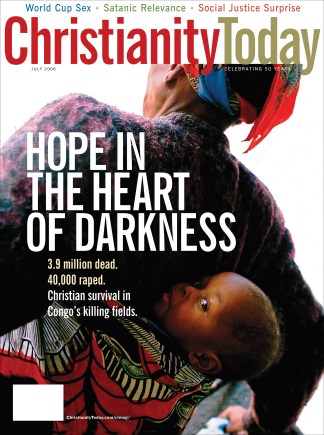Daniel Berry was practicing his faith, but his employers felt he took it too far. They told him to keep his Bible tucked in a desk drawer, to take down a “Happy Birthday Jesus” sign, and to stop praying with clients. Berry didn’t like the orders given by the Tehama County Department of Social Services, so he sued, claiming his First Amendment rights had been infringed. The Ninth Circuit U.S. Court of Appeals ruled against him in May, further affirming the limitations on overt Christian behavior by government employees.
The ruling was “clearly unreasonable,” said one of Berry’s attorneys, Brad Dacus, president of the Pacific Justice Institute in Sacramento, California. “There are government employees who are flagrantly demonstrative in regards to their sexual orientation. It’s inequality to say employees of faith don’t have that same right to exhibit who they are as a Christian.”
Berry, who describes himself as an evangelical compelled to share his faith and pray with others, has worked for the Northern California county’s social services since 1991 and continues to do so. In 1997, he was transferred to the employment services division, where he helps people transition out of welfare.
Beginning in 2001, Berry hosted informal and unscheduled prayer meetings in a conference room, even after the county told him he could not use the site. They said he should use a break room instead. Later that year, he challenged a departmental rule and placed a Bible on his desk and hung a Jesus sign on his cubicle. He was seen praying with clients. Berry had never been prevented from sharing his faith with coworkers. But the county strictly prohibited religious conversations with clients, because they feared such dialogue could be perceived as government endorsement of religion.
Dacus said they have not decided whether to appeal the Ninth Circuit’s decision to the U.S. Supreme Court. It may be worth their while.
“Generally, an employee is not barred from giving a religious testimony—even to the general public,” Derek Davis, director of the Dawson Institute of Church-State Studies at Baylor University, told CT. “If you invited the client to pray with you and the client said, ‘Sure—why not?’ that would be okay. If the client resisted, then you would need to back off.”
The case would have been different had Berry not been a government employee. The “cloud” of “separation of church and state sometimes shuts peoples’ mouths when they don’t have to [be] shut,” said Os Hillman, director of the International Coalition of Workplace Ministries. “Yet there are clearly times you don’t want to overstep your bounds.”
One of those is evangelizing on company time. Another is proselytizing a coworker who feels harassed. The best things Christians can do, Hillman said, are work hard, demonstrate integrity and love, and share how God is transforming their lives.
“I particularly like what St. Francis of Assisi said, ‘Preach the gospel always, and when necessary use words,'” Hillman said. “That is especially important in the workplace.”
Copyright © 2006 Christianity Today. Click for reprint information.
Related Elsewhere:
The full decision is available from the Ninth Circuit Court of Appeals.
News elsewhere includes:
County worker has no right to preach at work, 9th Circuit rules | A federal appeals court yesterday dismissed a First Amendment lawsuit by a Tehama County employee, a self-described evangelical Christian who said he had a right to practice and preach his beliefs in the workplace. (Associated Press, May 2, 2006)
Public employee loses religious freedom case | Tehama County’s limits on evangelical Christian upheld (San Francisco Chronicle, May 2, 2006)
Court: Man’s rights were not violated | Tehama County told employee not to talk religion with clients (Record Searchlight, Redding, Ca.)
More articles on church/state issues is available from our Politics & Law page.










